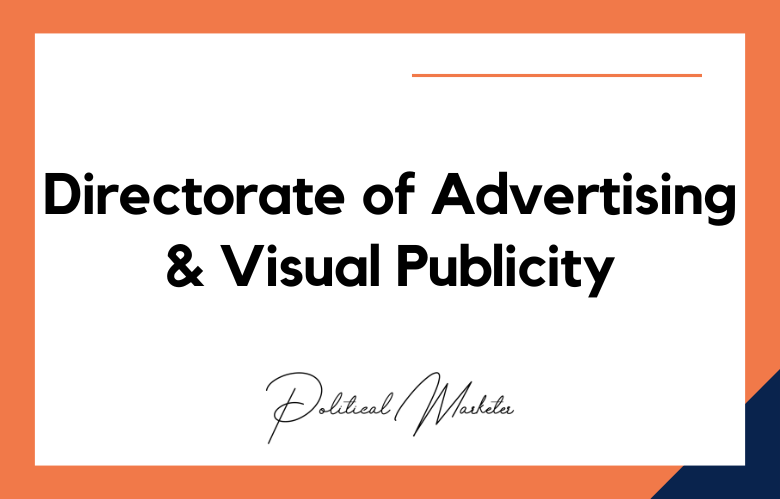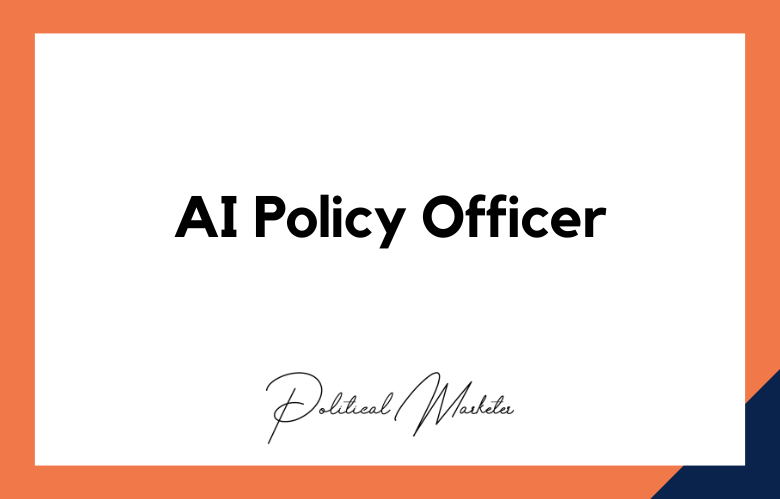AI-generated political ads are changing the game. Traditional methods need help to keep up with the speed and precision of these new tools. Voters today crave authenticity and relevance, while outdated ads often need to catch up. With AI, campaigns can create tailored messages that resonate deeply. This tech analyzes data to craft advertisements that speak directly to voter concerns.
It’s not just about flashy visuals; it’s about connecting on a personal level. As we explore this topic, you’ll discover how AI reshapes political advertising and why it matters to candidates and voters. The future of campaigning is here, powered by artificial intelligence.
Key Takeaways
- AI is transforming political ads by helping candidates target specific audiences more effectively, making it crucial for campaigns to adopt these technologies.
- To enhance ad effectiveness, use AI tools to analyze voter data and tailor messages that resonate with different demographics.
- Be aware of AI’s challenges, such as misinformation and bias, and implement strategies to ensure accurate and fair ad content.
- Ethical considerations are vital; campaigns should prioritize transparency in their use of AI to build trust with voters.
- Regularly evaluate the performance of AI-generated ads to refine strategies and improve engagement based on real-time feedback.
- Engage with your audience using AI to create personalized content that addresses their concerns and interests.
Role of AI in Political Ads
Generative AI Overview
Generative AI can create content, including text, images, and videos in political ads. Machine learning powers these systems. Natural language processing (NLP) helps AI understand and generate human-like text. These technologies enable campaigns to produce tailored messages quickly.
The tools for generative AI are evolving fast and becoming more straightforward to use. Campaigns of all sizes can now access them. This evolution means more candidates can create engaging ads without needing large teams or budgets.
Targeting Audiences
AI can effectively identify specific voter demographics. For example, it can target young voters, seniors, or minorities. By analyzing data from social media and online behavior, AI understands what messages resonate with each group.
Tailored messaging is crucial in political campaigns. AI analyzes trends and preferences to craft personalized messages, ensuring that each audience segment receives relevant content. Real-time adjustments are also possible. If a message gains traction, campaigns can instantly modify their targeting strategy.
Empowering Smaller Campaigns
AI tools offer valuable resources for smaller political campaigns. Many of these campaigns need larger budgets, and generative AI allows them to create high-quality ads without spending a fortune.
Several successful low-budget campaigns have utilized AI-generated content. For instance, a local candidate might use AI to produce engaging social media posts that attract attention. This success story illustrates how accessible technology can level the playing field.
The democratization of political advertising is significant. More candidates can reach voters effectively through affordable AI solutions. This shift encourages diverse voices in politics, which benefits democracy.
Enhancing Ad Effectiveness
Data-Driven Strategies
Data collection is essential for shaping effective political advertising strategies. Campaigns rely on accurate data to understand voter behaviors and preferences. AI processes vast amounts of information quickly. It identifies trends that human analysts might miss. For example, AI can analyze social media interactions to see which issues matter most to voters.
Campaigns can adjust their strategies based on these predictions. If a particular message resonates well, teams can focus more resources there. This shift helps maximize impact and improve voter outreach.
Personalization Benefits
Personalized messaging significantly increases voter engagement. Voters respond better to ads that feel tailored to them. AI enables the creation of customized advertisements that resonate with individual voters. By analyzing personal data, AI can suggest specific topics or tones for each ad.
The impact of personalization is clear. Voter turnout improves when individuals feel connected to a campaign. Studies show that personalized ads lead to higher engagement rates. This connection often translates into more excellent campaign success rates as well.
Cost Efficiency
AI reduces costs associated with traditional advertising methods. Traditional campaigns often require an extensive workforce and resources. In contrast, AI automates many repetitive tasks, like ad placement and audience targeting. This automation frees up valuable resources for other campaign needs.
Investing in AI tools yields long-term financial benefits for political campaigns. While initial costs may seem high, the savings from increased efficiency are significant. Campaigns can allocate funds to vital areas like grassroots organizing or community outreach instead.
Challenges and Concerns
Addressing Falsehoods
AI can help fact-check political content before it spreads. It can analyze statements and compare them with verified data, ensuring that misinformation is caught early. AI also plays a role in monitoring social media for false claims. Platforms can use AI tools to identify misleading posts quickly. These systems need to focus on accuracy in political messaging. Developing AI that prioritizes facts will help maintain trust in political communications.
Tackling Bias Issues
Bias exists in AI training data, which affects political ads. If the data reflects particular views, the ads may promote those biases. Identifying these biases is crucial for fair political messaging. Techniques like auditing datasets can help find hidden biases. Using diverse datasets ensures a range of perspectives is included. This approach promotes fair representation in political ads and helps reach a broader audience.
Avoiding Generic Language
Creative prompts can lead to unique and engaging political content. Relying solely on AI risks producing bland messages that fail to resonate with voters. Originality is vital in capturing attention during campaigns. Human oversight is essential in refining AI-generated language. This collaboration enhances creativity and ensures messages are compelling. Combining human insight with AI efficiency creates effective political ads.
Ethical Considerations
Ensuring Transparency
Transparency is crucial in the realm of AI-generated political ads. Voters deserve to know how these ads are created and targeted. Disclosing AI’s involvement in political advertising helps build trust. It allows the public to see who is behind the messages they receive.
Potential regulations could govern the use of AI in political campaigns. For instance, laws may require campaigns to label AI-generated content clearly, helping voters understand what they are viewing. Regulations can also set standards for data usage and targeting strategies.
Maintaining Accountability
Campaign teams hold significant responsibilities when using AI-generated content. They must ensure that their ads do not mislead or manipulate voters. Clear guidelines on ethical usage are necessary. These guidelines can help avoid harmful practices in political advertising.
Accountability mechanisms should be in place to address the potential misuse of AI tools. Campaigns need to monitor their AI systems regularly. This ensures that the content remains accurate and ethical. If misuse occurs, there should be consequences for those responsible.
Building Public Trust
Transparency and accountability play vital roles in fostering public trust in political ads. Voters want to feel confident about the information presented to them. Engaging with voters helps campaigns understand their concerns about AI usage. Listening to feedback can guide ethical practices in advertising.
Campaigns must demonstrate AI’s benefits while addressing its risks. It is essential to show how AI can enhance communication. However, acknowledging potential drawbacks is equally crucial. This balanced approach can help reassure voters about the integrity of political ads.
Final Remarks
AI-generated political ads are changing the game. They enhance effectiveness but come with challenges and ethical concerns. Stay informed about how AI shapes political messaging and its potential impact on your decisions.
Engaging with this technology responsibly can empower you as a voter. Be aware of the ads you encounter and think critically about their sources. Your awareness can drive positive change in political advertising practices. Dive deeper into this topic and shape the future of political communication.
Frequently Asked Questions
What is the role of AI in political ads?
AI analyzes voter data to create targeted political ads. It helps campaigns reach specific demographics effectively, increasing engagement and conversion rates.
How do AI-generated ads enhance effectiveness?
AI-generated ads optimize messaging based on real-time data. They adapt content to resonate with audiences, improving campaign performance and click-through rates.
What challenges do AI-generated political ads face?
Challenges include data privacy concerns, potential algorithm bias, and the risk of misinformation, which can undermine trust and campaign efficacy.
Are there ethical concerns with AI in political advertising?
Yes, ethical concerns revolve around manipulation, transparency, and accountability. Campaigns must ensure they use AI responsibly to maintain integrity and public trust.
How can AI improve targeting in political campaigns?
AI uses advanced analytics to segment voters by behavior and preferences. This precision allows for tailored messages that are more likely to influence voter decisions.
Can AI help in crisis management for political campaigns?
Absolutely. AI can quickly analyze social media sentiment and respond to crises in real-time, helping campaigns manage their reputation effectively during turbulent times.
Is AI capable of predicting election outcomes?
While AI can analyze trends and voter behavior to forecast outcomes, predictions are not foolproof. Factors like last-minute changes can significantly affect results.











